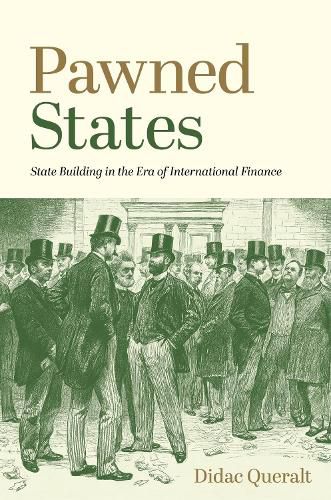Readings Newsletter
Become a Readings Member to make your shopping experience even easier.
Sign in or sign up for free!
You’re not far away from qualifying for FREE standard shipping within Australia
You’ve qualified for FREE standard shipping within Australia
The cart is loading…






How foreign lending weakens emerging nations
In the nineteenth century, many developing countries turned to the credit houses of Europe for sovereign loans to balance their books and weather major fiscal shocks such as war. This reliance on external public finance offered emerging nations endless opportunities to overcome barriers to growth, but it also enabled rulers to bypass critical stages in institution building and political development. Pawned States reveals how easy access to foreign lending at early stages of state building has led to chronic fiscal instability and weakened state capacity in the developing world.
Drawing on a wealth of original data to document the rise of cheap overseas credit between 1816 and 1913, Didac Queralt shows how countries in the global periphery obtained these loans by agreeing to extreme conditionality, which empowered international investors to take control of local revenue sources in cases of default, and how foreclosure eroded a country’s tax base and caused lasting fiscal disequilibrium. Queralt goes on to combine quantitative analysis of tax performance between 1816 and 2005 with qualitative historical analysis in Latin America, Asia, Africa, and the Middle East, illustrating how overreliance on external capital by local leaders distorts their incentives to expand tax capacity, articulate power-sharing institutions, and strengthen bureaucratic apparatus.
Panoramic in scope, Pawned States sheds needed light on how early and easy access to external finance pushes developing nations into trajectories characterized by fragile fiscal institutions and autocratic politics.
$9.00 standard shipping within Australia
FREE standard shipping within Australia for orders over $100.00
Express & International shipping calculated at checkout
How foreign lending weakens emerging nations
In the nineteenth century, many developing countries turned to the credit houses of Europe for sovereign loans to balance their books and weather major fiscal shocks such as war. This reliance on external public finance offered emerging nations endless opportunities to overcome barriers to growth, but it also enabled rulers to bypass critical stages in institution building and political development. Pawned States reveals how easy access to foreign lending at early stages of state building has led to chronic fiscal instability and weakened state capacity in the developing world.
Drawing on a wealth of original data to document the rise of cheap overseas credit between 1816 and 1913, Didac Queralt shows how countries in the global periphery obtained these loans by agreeing to extreme conditionality, which empowered international investors to take control of local revenue sources in cases of default, and how foreclosure eroded a country’s tax base and caused lasting fiscal disequilibrium. Queralt goes on to combine quantitative analysis of tax performance between 1816 and 2005 with qualitative historical analysis in Latin America, Asia, Africa, and the Middle East, illustrating how overreliance on external capital by local leaders distorts their incentives to expand tax capacity, articulate power-sharing institutions, and strengthen bureaucratic apparatus.
Panoramic in scope, Pawned States sheds needed light on how early and easy access to external finance pushes developing nations into trajectories characterized by fragile fiscal institutions and autocratic politics.